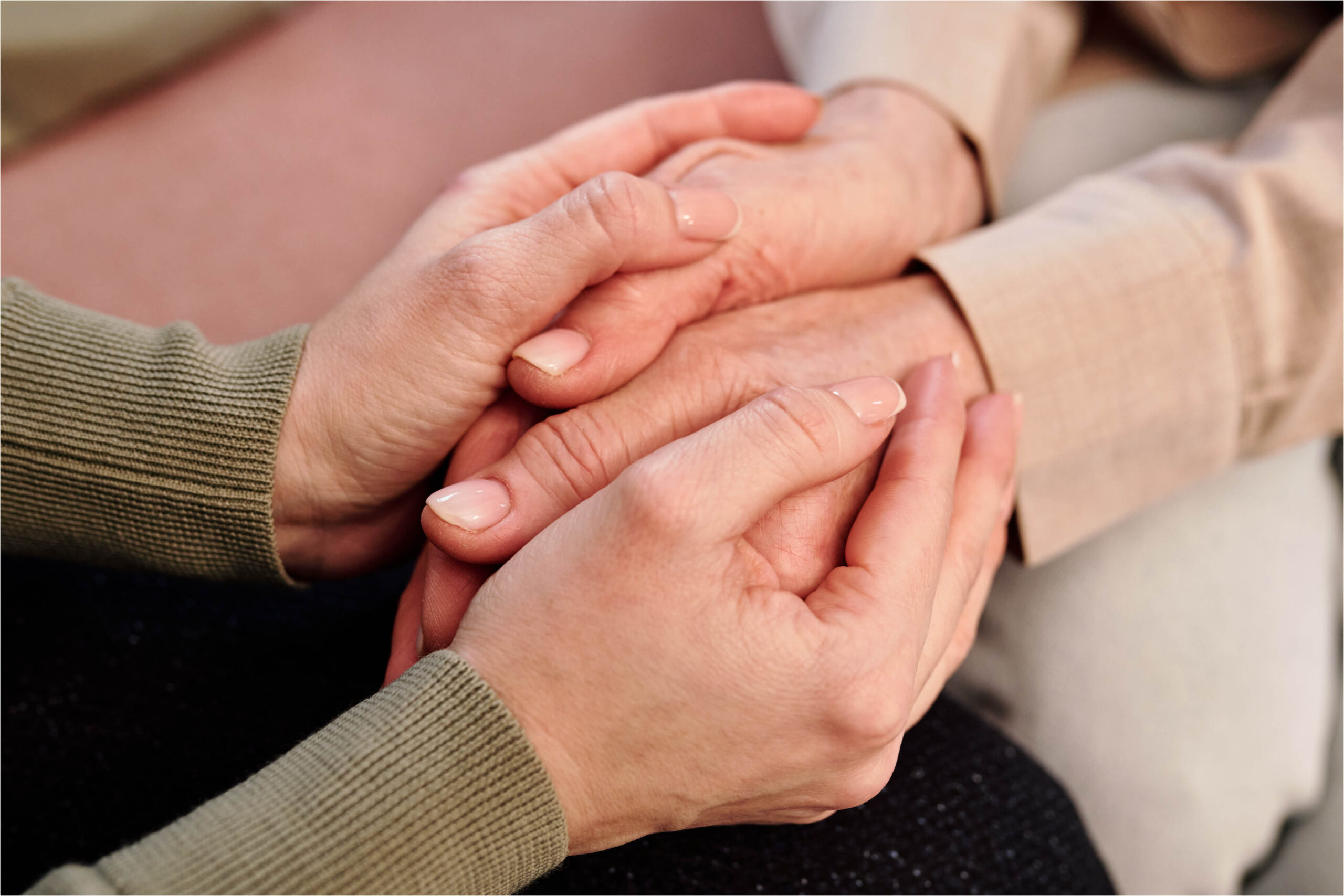Explore web search results related to this domain.

Some of the main teachings are ... how to cope. Students get a weekly homework assignment that has them practice an “evidence-based behavior that can help relieve feelings of stress,” Kim-Cohen said, like helpful breathing techniques and certain types of music. “Sleep is a really big one because college students in general don’t get all the sleep that they need and that can actually prevent them from coping well with stress,” Kim-Cohen said. For Daley, these “resilience rewirements” ...
Some of the main teachings are the science of stress and trauma and then learning how to cope. Students get a weekly homework assignment that has them practice an “evidence-based behavior that can help relieve feelings of stress,” Kim-Cohen said, like helpful breathing techniques and certain types of music. “Sleep is a really big one because college students in general don’t get all the sleep that they need and that can actually prevent them from coping well with stress,” Kim-Cohen said. For Daley, these “resilience rewirements” were a big takeaway because some elements of daily life can go unappreciated or unnoticed, like sleep or exercise, when those are important for overall resilience.Senior Kayla Daley is starting the Behavioral Health Student Alliance as a parting gift to UIC and students who may face struggles like hers.In fall 2020, Kim-Cohen said, she designed a course on resilience, which is “all about coping with stress and developing mental health and wellness even in the face of stress and all the really hard things that people have to deal with.”She said the teachings and techniques she picked up in the class are tools she will keep with her well beyond college. The club should be up and running by the start of spring, Daley said, with her serving as its first president. Information can be found next semester on the Behavioral Health Student Alliance’s Instagram account. Daley said she hopes to also pass on some of the resilience learning to other students as they join the club.

WeShare®, a leading provider of community-driven Christian health shares, is excited to announce the launch of its new podcast. In the episode, wide r
NORFOLK, Va.--(BUSINESS WIRE)--WeShare®, a leading provider of community-driven Christian health shares, is excited to announce the launch of its new podcast. In the episode, wide receiver Amon-Ra St. Brown opens up about his mental health journey and the importance of prioritizing both physical and mental wellness.WeShare's new podcast series features an exclusive interview with wide receiver and WeShare ambassador Amon-Ra St. Brown. The podcast offers listeners rare insights into the elite athlete’s holistic approach to mental and physical well-being, underscoring his dedication both on and off the field.Brittney Moses expressed excitement about the podcast episode, stating, "Our partnership with Amon-Ra St. Brown exemplifies WeShare's commitment to promoting holistic health and wellness. Through this podcast, we aim to inspire our members and listeners to prioritize their physical and mental well-being, just as elite athletes do."WeShare is thrilled to share this insightful conversation with St. Brown, who offers valuable insights into the importance of mental health and wellness.
The definition highlights; “Health ... intellectual and emotional potential. It has also been defined as a state of well-being whereby individuals recognize their abilities, are able to cope with the normal ......
The definition highlights; “Health is a state of complete physical, mental and social well-being and not merely the absence of disease or infirmity.” Concepts of mental health include subjective well-being, perceived self-efficacy, autonomy, competence, and recognition of the ability to realize one's intellectual and emotional potential. It has also been defined as a state of well-being whereby individuals recognize their abilities, are able to cope with the normal stresses of life, work productively and fruitfully, and make a contribution to their communities.Resilience is often discussed as that aspect of mental health and coping which is paramount to the ability to spring back during adverse circumstances. The mention of positive health necessarily recounts on the ability to withstand and cope with stress adaptively.It is noted that healthier lifestyles, better physical health, higher educational attainment, greater productivity, employment, and earnings are affected by positive mental health or “well-being.”[11] There is enough evidence on the psychological aspects and attributes of resilience.Mental health is about enhancing competencies of individuals and communities and enabling them to achieve their self-determined goals.[1] A growing body of cross-cultural evidence indicates that various psychological, social and behavioral factors can protect health and support positive mental health. Such protection facilitates resistance (resilience) to disease, minimizes and delays the emergence of disabilities, and promotes more rapid recovery from illness.[2]
To address the nuances underlining ... threat/challenge). This dichotomy is intended to facilitate cognitive behavioral therapy, as well as translational research on stress and mental resilience....
To address the nuances underlining stress severity, we propose to update a dichotomy in the cognitive appraisal terminology—self-appraisal (i.e., the perception of self-efficacy to deal with the stressor) and stressor-appraisal (the perception of threat/challenge). This dichotomy is intended to facilitate cognitive behavioral therapy, as well as translational research on stress and mental resilience.Aversive events can evoke strong emotions that trigger cerebral neuroactivity to facilitate behavioral and cognitive shifts to secure physiological stability. However, upon intense and/or chronic exposure to such events, the neural coping processes can be maladaptive and disrupt mental well-being.Our hypotheses need to be tested to further clarify the various interfering factors with stress reactivity and resilience, such as sex hormones and genetic polymorphism related to serotonin and dopamine signaling reviewed above, as well as stressor type and stress timing/continuity (single, repeated intermittent, or chronic) that can involve different neural pathways and different reactivity of the HPA axis and LC-NE system.This maladaptation denotes a pivotal point when psychological stress occurs, which can trigger subconscious, “automatic” neuroreactivity as a defence mechanism to protect the individual from potential danger including overwhelming unpleasant feelings and disturbing or threatening thoughts.The outcomes of maladaptive neural activity are cognitive dysfunctions such as altered memory, decision making, and behavior that impose a risk for mental disorders. Although the neurocognitive phenomena associated with psychological stress are well documented, the complex neural activity and pathways related to stressor detection and stress coping have not been outlined in detail.

Discover how protective factors within a child’s developmental environment can help build essential skills to help children cope with adversity and foster lifelong well-being. ... Building young children’s capacity for resilience, thereby reducing the effects of significant adversity or ...
Discover how protective factors within a child’s developmental environment can help build essential skills to help children cope with adversity and foster lifelong well-being. ... Building young children’s capacity for resilience, thereby reducing the effects of significant adversity or toxic stress on early development, is essential to their lifelong health and well-being.Indeed, learning to cope with manageable threats—or positive stress—is critical for developing resilience. The capabilities that underlie resilience can be strengthened at any age, underscoring the need for supportive policies and programs. Explore the resources in this guide and our guide to toxic stress to learn more.

As tensions mount on Election Day 2024, here are some last-minute tips to ease stress and anxiety, according to experts.
Try to establish some boundaries for your own well-being.Sara Moniuszko is a health and lifestyle reporter at CBSNews.com. Previously, she wrote for USA Today, where she was selected to help launch the newspaper's wellness vertical.Stay off or limit social media: "Use it to get information and not validation," stress management expert Jon Gordon told CBS News. "Don't tie your identity or your own mental health to what you're watching."Alabama woman doing well after gene-edited pig kidney transplant

Treating all adversity as inherently negative does a disservice to children and their ability to develop adaptive coping mechanisms that can protect them in future cases of adversity.
However, it is also well documented that not all forms of adversity are inherently “bad” for children. As researchers in health promotion with a particular interest in the resilience of equity-deserving populations, we notice that the overwhelming narrative around childhood adversity is that it should be avoided.It’s important to note the distinction between child adversity in general and specific circumstances known as Adverse Childhood Experiences (ACEs). Childhood adversity in general is a broad term that captures a wide array of circumstances or events that may pose threats to a child’s physical or psychological well-being.Research shows that many lessons can be learned from losing. By helping children to shift the framing of their loss from failure to an opportunity for growth, children can begin to develop a growth mindset. This can not only support their resilience, but also their teamwork and interpersonal skills.In a systematic review on the resilience of children and their caregivers conducted by our team, a major theme that emerged was that the COVID-19 pandemic created the “perfect storm” for negative socioeconomic impacts among families.
People who are emotionally well, experts say, have fewer negative emotions and are able to bounce back from difficulties faster. This quality is called resilience. Learning healthy ways to cope and how to draw from resources in your community can help you build resilience. ... Develop healthy physical habits. Healthy eating, physical activity, and regular sleep can improve your physical and mental ...
People who are emotionally well, experts say, have fewer negative emotions and are able to bounce back from difficulties faster. This quality is called resilience. Learning healthy ways to cope and how to draw from resources in your community can help you build resilience. ... Develop healthy physical habits. Healthy eating, physical activity, and regular sleep can improve your physical and mental health.Find out how to successfully handle life’s stresses and adapt to change and difficult times.Seek help. Talk to a mental health professional if you feel unable to cope, have suicidal thoughts, or use drugs or alcohol to cope. ... To fit in everything we want to do in our day, we often sacrifice sleep. But sleep affects both mental and physical health. It’s vital to your well-being.Stress can give you a rush of energy when it’s needed most. But if stress lasts a long time—a condition known as chronic stress—those “high-alert” changes become harmful rather than helpful. Learning healthy ways to cope with stress can also boost your resilience.

By embracing positive psychology ... build resilience and face life’s challenges with confidence. Family dynamics are very important for teen mental health. A study with 417 teens aged 13-20 showed that family environment affects how they cope and their mental health. Let’s look at how talking to teens, having a supportive home, and setting healthy boundaries help their well-be...
By embracing positive psychology and stress management, teens can build resilience and face life’s challenges with confidence. Family dynamics are very important for teen mental health. A study with 417 teens aged 13-20 showed that family environment affects how they cope and their mental health. Let’s look at how talking to teens, having a supportive home, and setting healthy boundaries help their well-being.The cost of late intervention for youth mental health issues is £17 billion. Mental health professionals are key in teaching teens to cope. They teach strategies that improve life satisfaction and mental well-being. The stronger a teen’s resilience, the happier they are with life.I’ve learned that asking open-ended questions and listening well can help a lot. When parents accept their teens’ feelings, it makes a safe place for talking. This is very important because 20% of teens aged 12-17 face mental health issues. ... A supportive home helps teens cope better.Discover effective ways to build resilience and coping strategies in adolescents. I share expert insights to help teens navigate stress and develop emotional strength

This shows how vital resilience coping mechanisms are. I’ve seen how mental toughness training can change lives, helping people overcome challenges with newfound strength. Exploring resilience, I learned it’s not about avoiding problems. It’s about learning to handle them well.
My research and personal experiences show small, achievable wellness changes can make a big difference. It’s not about sudden, big changes. It’s about building habits that make our minds stronger over time. Things like nutrition, sleep, hydration, and exercise are all important for resilience. As we dive into this topic, I’ll share practical tips and insights for building your resilience. Remember, mental strength is a journey, not a finish line.It is to be useful, to be honorable, to be compassionate, to have it make some difference that you have lived and lived well.” – Ralph Waldo Emerson · Here’s a quick guide to boost your professional resilience: ... Remember, growing professionally and living with purpose are ongoing journeys. By focusing on these areas, we can build resilience and find fulfillment in our careers. I’ve found some top-notch coping mechanisms to boost your mental strength.Setting clear boundaries is also key, with 70% of founders agreeing. This means saying no, keeping work and personal life separate, and finding time for self-care. Remember, resilience is about thriving, not just enduring. Celebrating small wins boosts mental well-being for 80% of founders.Building resilience is key to handling life’s ups and downs. Let’s look at some important coping strategies. They help boost mental strength and wellbeing.
It’s not about sudden, big changes. It’s about building habits that make our minds stronger over time. Things like nutrition, sleep, hydration, and exercise are all important for resilience. As we dive into this topic, I’ll share practical tips and insights for building your resilience.
My research and personal experiences show small, achievable wellness changes can make a big difference. It’s not about sudden, big changes. It’s about building habits that make our minds stronger over time. Things like nutrition, sleep, hydration, and exercise are all important for resilience. As we dive into this topic, I’ll share practical tips and insights for building your resilience. Remember, mental strength is a journey, not a finish line.It is to be useful, to be honorable, to be compassionate, to have it make some difference that you have lived and lived well.” – Ralph Waldo Emerson · Here’s a quick guide to boost your professional resilience: ... Remember, growing professionally and living with purpose are ongoing journeys. By focusing on these areas, we can build resilience and find fulfillment in our careers. I’ve found some top-notch coping mechanisms to boost your mental strength.Setting clear boundaries is also key, with 70% of founders agreeing. This means saying no, keeping work and personal life separate, and finding time for self-care. Remember, resilience is about thriving, not just enduring. Celebrating small wins boosts mental well-being for 80% of founders.Building resilience is key to handling life’s ups and downs. Let’s look at some important coping strategies. They help boost mental strength and wellbeing.

In the model we tested, we looked ... strategies, and mental well-being. Methods The first study involved 201 juveniles, and the second involved 253 juveniles. Resilience was measured by the Resilience Scale-14. Coping strategies were measured with the Brief-COPE Questionnaire, ...
Background Mental health is an important aspect of the process of individual adaptation and development. The present study analysed the role played by resilience in mental health while taking into account both positive and negative indicators among juveniles.Mental health is an important aspect of the process of individual adaptation and development. The present study analysed the role played by resilience in mental health while taking into account both positive and negative indicators among juveniles. The aim of the first study (Study 1) is to analyse the relationship between resilience and the broadly understood mental health of juveniles admitted to youth education centres.In the model we tested, we looked at the relationship among resilience, coping strategies, and mental well-being. The first study involved 201 juveniles, and the second involved 253 juveniles. Resilience was measured by the Resilience Scale-14. Coping strategies were measured with the Brief-COPE Questionnaire, and information on mental health was obtained using the Kutcher Adolescent Depression Scale, the Satisfaction with Life Scale and the Warwick-Edinburgh Mental Well-being Scale.Researchers consider the identified types of resilience to be an important resource that helps mitigate the risk factors for juveniles and prevent recidivism [86]. Kendziora and Osher focused on factors supporting resilience and the mental health of juveniles in relation to the following aspects: the family environment, local communities, systemic solutions, and the justice system [87]. Resilience correlates with a state of well-being not only directly but also indirectly through its impact on the ability to cope with stress.


These strategies help us deal with tough times and improve our overall well-being. In this article, I’ll share practical ways to build resilience for your everyday life. We’ll look at mindfulness, physical health tips, and more to strengthen your mental strength.
By focusing on these social support strategies, I’ve seen a big improvement in handling stress and setbacks. Remember, building resilience is a journey, and we’re not meant to do it alone. Taking care of my body is crucial for mental toughness. Physical wellness is the base for emotional resilience.Quality sleep is vital for emotional resilience. I’ve found that good sleep helps me deal with stress better. A regular bedtime routine and a comfy sleep space are key to my well-being. What I eat affects my stress management. Eating whole foods, fruits, veggies, and omega-3s lowers depression and anxiety risks. Nutritious food prepares me to face challenges and stay emotionally stable. “A balanced lifestyle, focusing on physical, mental, and emotional well-being, is necessary to achieve holistic health and resilience.”Adding these physical wellness habits to my daily life has boosted my emotional resilience. Small changes can make a big difference in mental toughness and stress management.Discover practical coping strategies to build resilience that I've learned through experience. Learn how to bounce back from challenges and create lasting mental strength

Kate Gladdin was 20 when her sister was killed in a road accident. Coping with her loss taught her resilience. She shares how to acquire it.
In 2013, she created a travel safety education programme that she delivered to more than 200,000 Australian high-school students, highlighting the consequences of taking risks in foreign countries. It evolved into a resilience and mental health mission for young people, to share what she had learned.

I am extremely lucky to have responded well to a course of cognitive behavioural therapy (CBT), but I can’t help wondering how much pain I could have avoided if I’d learned to manage my mental health better at a younger age, before my symptoms had even started to develop. This is the thinking behind new efforts to build people’s mental resilience...
There are now many options available, including education on coping strategies and evidence-based techniques to improve emotional regulation; physical exercise regimes (which have been shown to improve mental health); and music or art programmes that encourage creative expression. Although success rates vary, a recent meta-analysis concluded that resilience interventions can boost people’s wellbeing, and they are particularly effective at improving the trajectory of people who are already at a “moderate to high” risk of developing a mental illness.Early instruction that teaches young people how to recognise negative thought patterns and manage their mental health may help to avoid problems in later lifeThe My Resilience in Adolescence (Myriad) trial involved 85 schools with nearly 8,400 pupils aged 10 to 14. Forty two of the schools were asked to roll out a mindfulness training programme over 10 lessons, while the rest continued providing their typical support within standard personal, social, health and economic education (PSHE) lessons. At the end of the year, they tested the students’ depression and general wellbeing – and found no differences between the two groups.The promise, and potential pitfalls, of resilience intervention may be found in the study of mindfulness training. This involves the non-judgmental awareness of mental and bodily states, without getting caught up in thoughts or feelings, which can help to break ruminative cycles of thinking.
Researchers define psychological resilience as the ability to cope with or adapt to uncertainty, challenges, and adversity. It is sometimes referred to as “mental fortitude.”
Researchers define psychological resilience as the ability to cope with or adapt to uncertainty, challenges, and adversity. It is sometimes referred to as “mental fortitude.”Resilience means having the mental, emotional, and behavioral flexibility and ability to adjust to both internal and external demands. “It’s your ability to withstand adversity and bounce back and grow despite life’s downturns,” says Amit Sood, MD, the executive director of the Global Center for Resiliency and Well-Being and the creator of the Resilient Option program.Researchers went as far as saying that resilience was an important factor in fighting mental health conditions, and suggest that strengthening resilience could be an excellent large-scale method of preventing mental health disorders. ... Kids confront any number of challenges as they grow — from starting school and making new friends to adverse, traumatic experiences, such as bullying and abuse. Cultivating resilience from a young age — the ability to adapt well to adversity, trauma, tragedy, threats, and even sources of everyday stress at school or work — can help children manage stress and feelings of anxiety and uncertainty, according to the APA.Psychological Resilience, Mental Health, and Inhibitory Control Among Youth and Young Adults Under Stress. Frontiers in Psychiatry. January 2021. Emotional Resilience. The Children's Society. Whitson HE et al. Physical Resilience in Older Adults: Systematic Review and Development of an Emerging Construct. The Journals of Gerentology . April 2016. Lacomba-Trejo L et al. Are Coping Strategies, Emotional Abilities, and Resilience Predictors of Well-Being?

Mental wellness is the ability to manage, cope, and persevere in the face of success or struggle. It is the ability to shift and adapt to success or struggle while maintaining a level of balance in our brain and body. It is about pursuing and engaging in behaviours and activities that you enjoy ...
Or maybe, you feel as though your experience isn’t necessarily that critical and you’re able to cope and manage well enough day to day. Below I’ll discuss what mental wellness is, the mental health spectrum or continuum, and tips and tools on how you can support your own mental health and build mental resilience.It’s so important to have perspective on that, knowing that things CAN shift for the better when we have some knowledge and tools to cope. I have personally struggled with varying degrees and levels of anxiety since I was a teenager. It’s impacted me in a number of ways, and I’ve learned a wealth of knowledge throughout my experiences, building my resilience toolbox more and more. I’ve learned how I can best support myself, including when to ask for help, which are incredibly empowering and invaluable skills. Building mental resilience to support your mental wellness isn’t about ignoring the issues or pretending like they do not exist.Explore the spectrum of mental wellness, understand its nuances, and discover tools to build resilience and maintain balance.Mental wellness is the ability to manage, cope, and persevere in the face of success or struggle. It is the ability to shift and adapt to success or struggle while maintaining a level of balance in our brain and body. It is about pursuing and engaging in behaviours and activities that you enjoy and create a generally positive life. When we are mentally well, we are able to appropriately respond to life’s stressors.

Are you made of tough enough stuff? Learn tips to improve your coping skills.

Spend time in nature. This can help to reduce stress and improve wellbeing. You could try going for a walk in a green space, taking care of indoor plants, or spending time with animals. Our nature and mental health pages have more information.
Browse our online range including our range of mental health resources, wedding favours, Pause for Mind and greetings cards. ... Explains what stress is, what might cause it and how it can affect you. Includes information about ways you can help yourself and how to get support. ... Being prepared for periods of stress can make it easier to get through them. And knowing how to manage our wellbeing can help us recover after a stressful event.Spend time in nature. This can help to reduce stress and improve wellbeing. You could try going for a walk in a green space, taking care of indoor plants, or spending time with animals. Our nature and mental health pages have more information.Below are some tips you could try to help you manage stress and build your resilience. Trying these ideas won't make all the stress in your life disappear. But they could make it easier to get through stressful situations. Taking care of your wellbeing can help you feel more able to manage stress.See our pages on wellbeing for more tips to support yourself. My advice would be if you’re feeling stressed, be kind to yourself, everything starts with you. Research shows that having a good support network can help to build resilience and make stress easier to manage.

Resilience is the process and outcome of successfully adapting to difficult or challenging life experiences, especially through mental, emotional, and behavioral flexibility and adjustment to external and internal demands.









